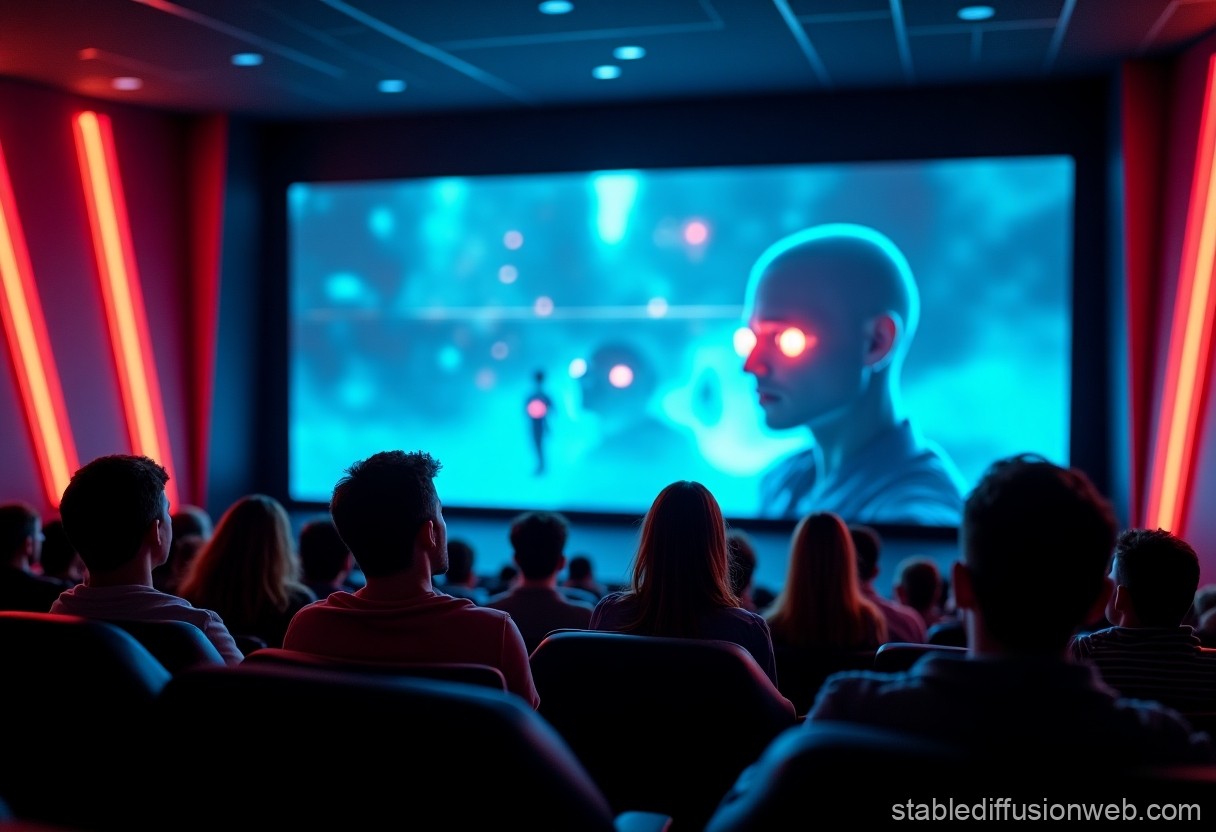AMC Theaters is once again at the forefront of cinematic innovation, this time embracing AI-driven technology to enhance the viewing experience. The renowned theater chain is premiering a Swedish sci-fi film, “Watch the Skies,” with an advanced form of AI-assisted dubbing that not only replaces the original voice track with English dialogue but also modifies the actors’ facial expressions to make it appear as though they are naturally speaking English.
Unlike traditional dubbing methods that can often disrupt the immersive experience, this technique—developed by Flawless AI—digitally alters mouth movements to match the new dialogue, ensuring seamless synchronization. What makes this adaptation particularly noteworthy is that the original Swedish actors themselves recorded the English dialogue, maintaining authenticity and compliance with SAG-AFTRA regulations. This ensures that AI is not replacing actors but rather enhancing their performances with their full participation and consent.
The introduction of this “visual dubbing” could make foreign-language films more accessible to audiences who prefer not to read subtitles or who are put off by the unnatural lip-syncing of standard dubbing. However, not everyone is on board with this innovation. Critics argue that such technology could diminish cultural diversity by prioritizing English over other languages, especially at a time when international cinema is enjoying increased recognition and appreciation in the U.S. There is also concern that even when actors record their own English dialogue, some nuances of their native-language performances could be lost in translation.
Despite these concerns, AI-powered dubbing is gaining traction beyond the movie theater industry. Content creators like YouTube sensation MrBeast have experimented with AI-driven voiceovers to translate videos into multiple languages, making them accessible to a wider audience. Likewise, YouTube itself has introduced tools that allow creators to generate AI-powered voiceovers in different languages automatically.
While the potential of AI in filmmaking remains a subject of debate, Hollywood studios see it as a tool to streamline production and reduce costs, particularly in areas like visual effects. However, concerns persist about its overuse or misuse, with some fearing that AI could lead to a decline in quality if studios prioritize cost-cutting over artistic integrity. AI-powered video generation tools like OpenAI’s Sora, Runway, and Google’s alternatives have also sparked conversation, with mixed reactions from the industry.
Ultimately, as AMC Theaters pioneers this new approach to dubbing, the future of AI’s role in filmmaking will likely continue to be shaped by both technological advancements and ethical considerations. Whether audiences embrace or resist this evolution, one thing is certain: AI is redefining how global cinema is consumed.
